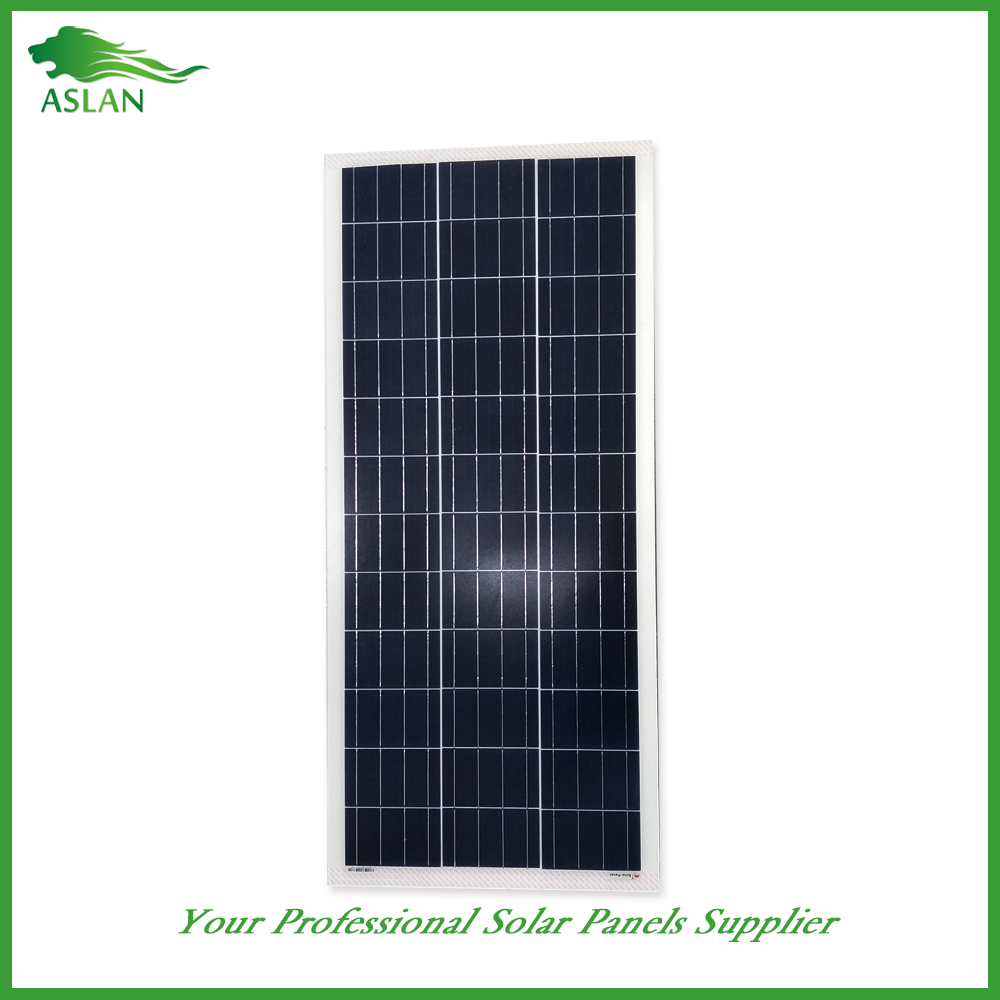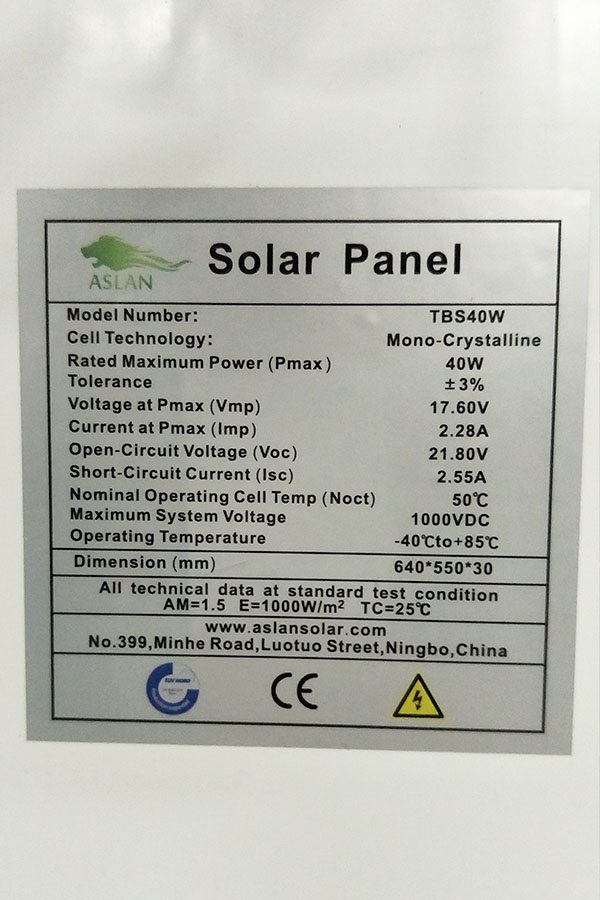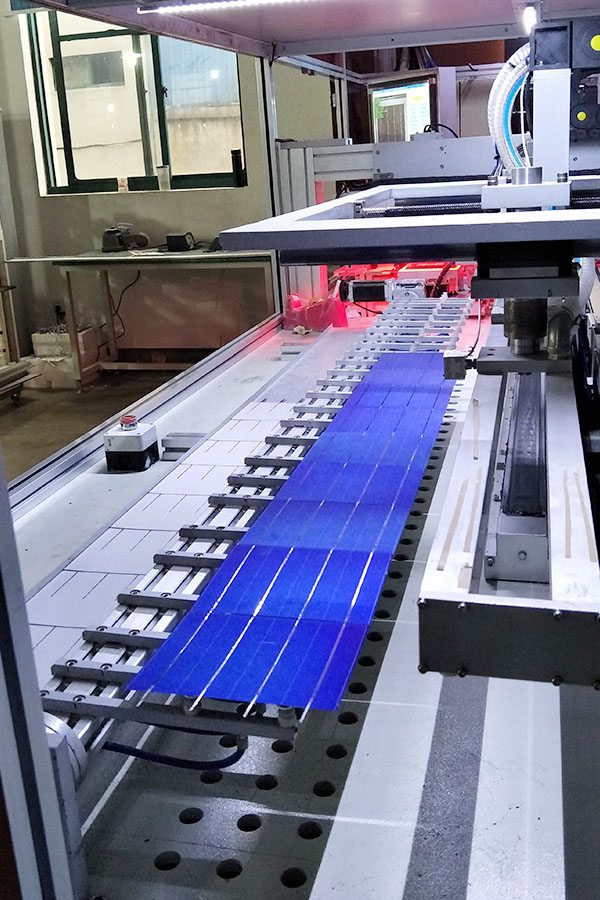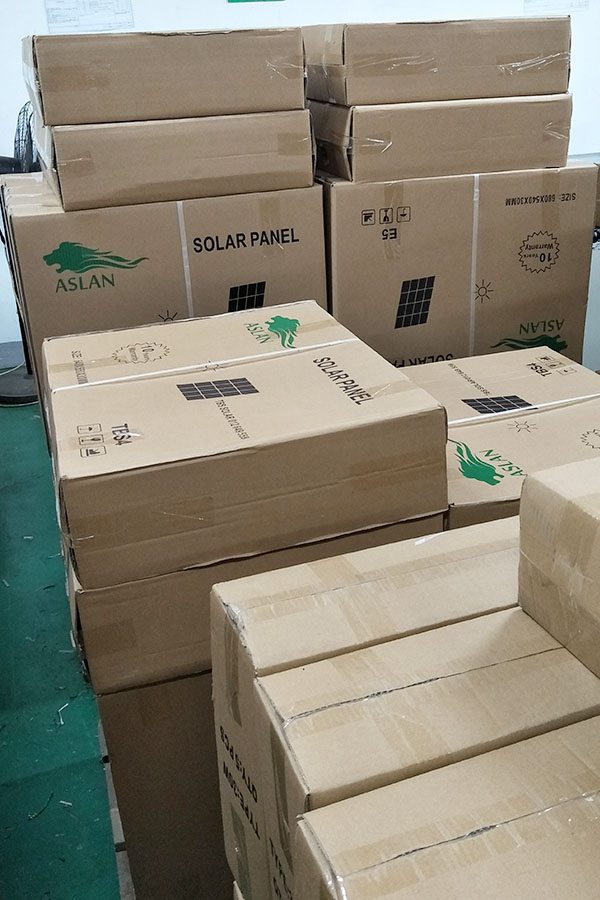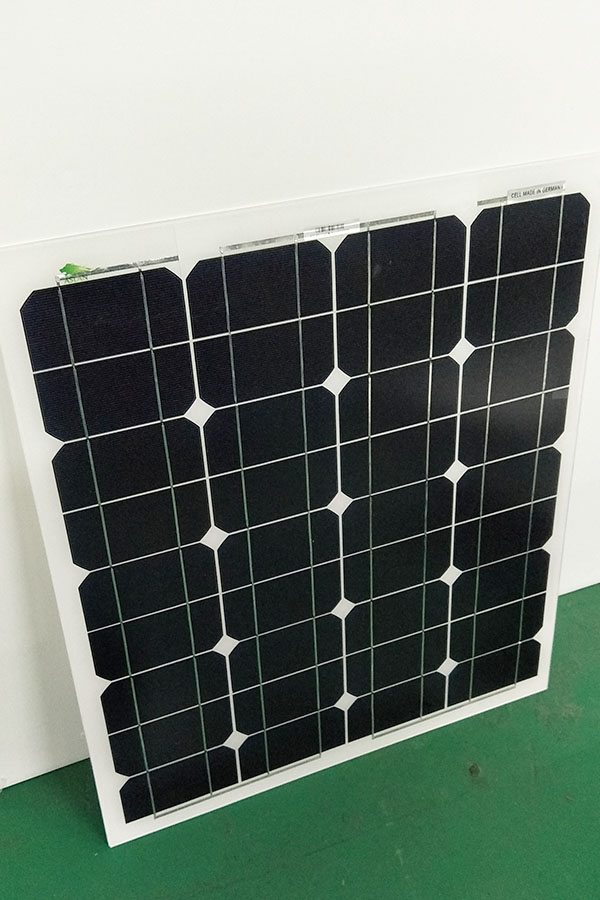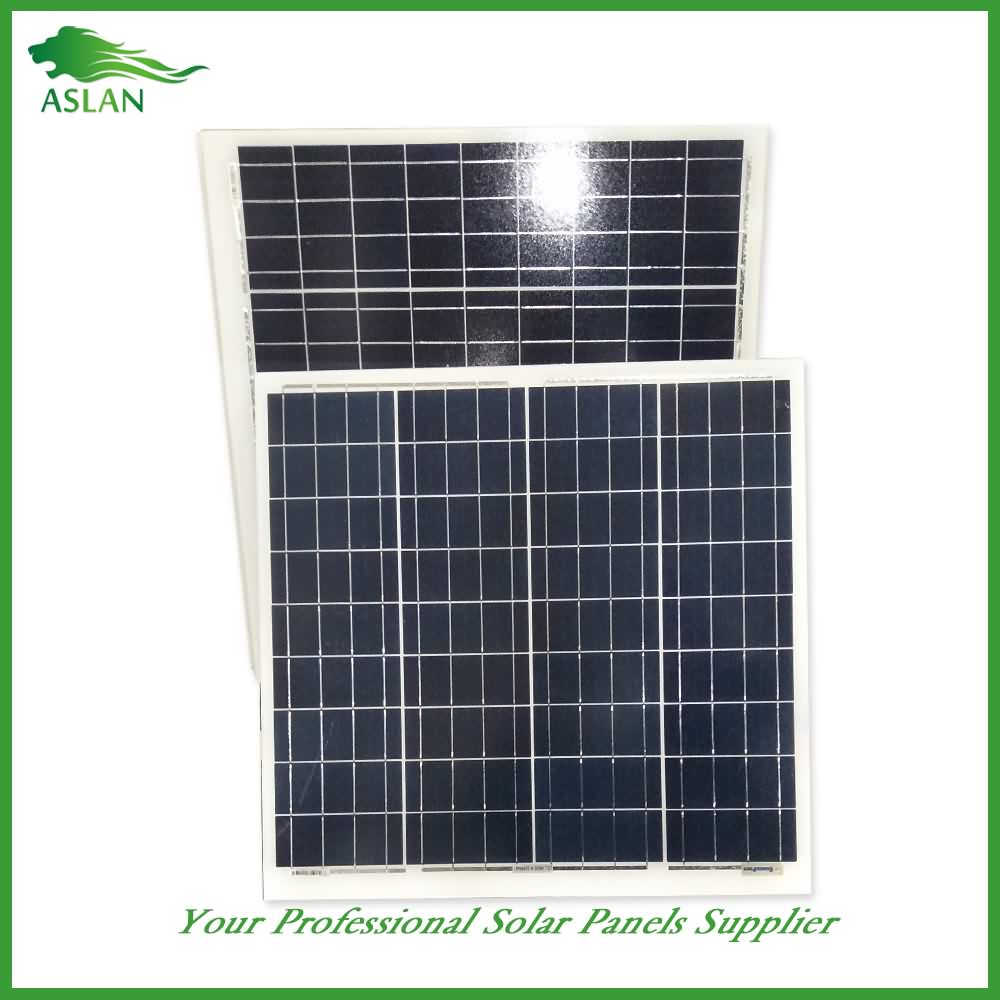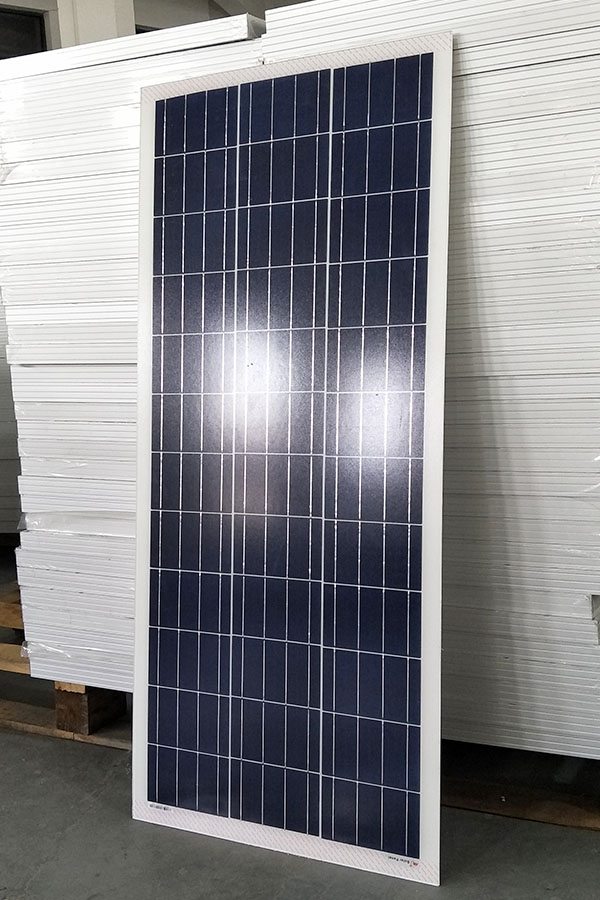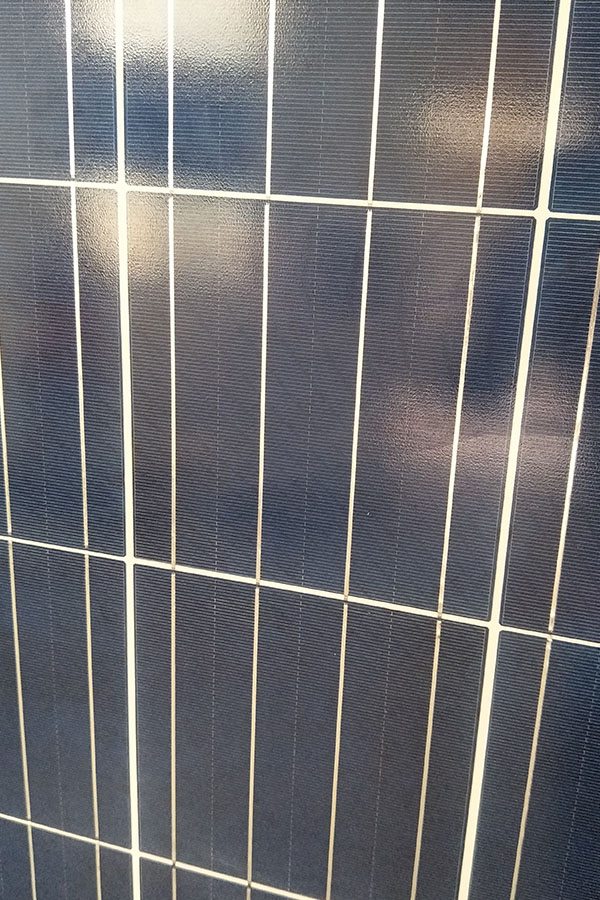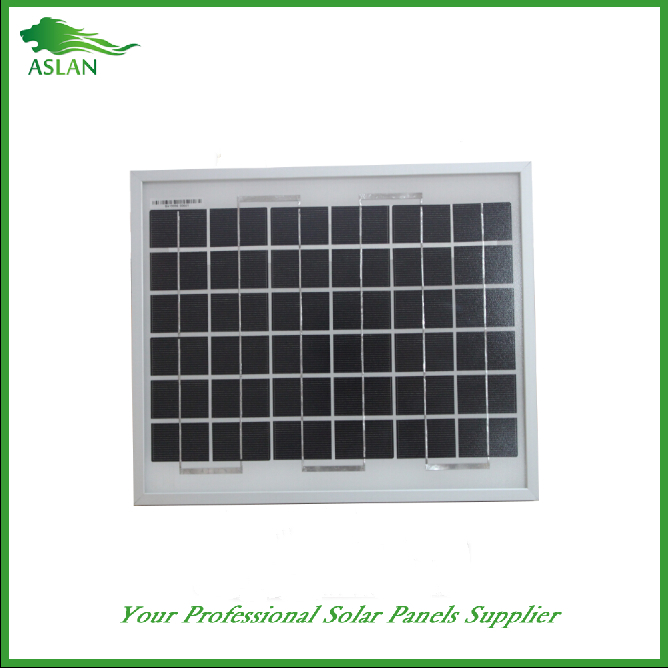2016 High quality Poly-crystalline Solar Panel 90W to Ecuador Factory
Short Description:
Every member from our high efficiency sales team values customers' needs and business communication for 2016 High quality Poly-crystalline Solar Panel 90W to Ecuador Factory, Our tenet is 'Reasonable prices, efficient production time and best service .' We hope to cooperate with more customers for mutual development and benefits.
Poly-crystalline Solar Panel 90W
Technical parameter
Maximum Power(W) 90W
Optimum Power Voltage(Vmp) 18.33V
Optimum Operating Current(Imp) 4.91A
Open Circuit Voltage(Voc) 21.96V
Short Circuit Current(Isc) 4.89A
Mechanical Characteristics
Cell Type Poly-crystalline 156x104mm (6 inch)
No of Cell 36 (4x9pcs)
Dimensions 1008x678x35mm
Weight 8.0KGS
Front Glass 3.2mm,High Transmission, Low Iron,Tempered Glass
Junction box IP65 Rated
Output Cable TUV 1×4.0mm2/UL12AWG,Length:900mm
Temperature and Coefficients
Operating Temperature(°C): -40°C ~ + 85°C
Maximum System Voltage: 600V(UL)/1000V(IEC) DC
Maximum Rated Current Series: 15A
Temperature Coefficients of Pmax: -0.435%
Temperature Coefficients of Voc: -0.35%
Temperature Coefficients of Isc: 0.043%
Nominal Operationg Cell Temperature (NOCT): 47+/-2°C
Materials of solar panel
1).Solar Cell——Poly-crystalline solar cell 156*104mm
2).Front Glass——-3.2mm, high transmission, low iron, tempered glass
3).EVA——-excellent anti-aging EVA
4).TPT——-TPT hot seal made of flame resistance
5).Frame——anodized aluminum profile
6).Junction Box——-IP65 rated, high quality, with diode protection
Superiority: high quality anodized aluminum frame, high efficiency long life, easy installation, strong wind resistance, strong hail resistance.
Features
1. High cell efficiency with quality silicon materials for long term output stability
2. Strictly quality control ensure the stability and reliability, totally 23 QC procedures
3. High transmittance low iron tempered glass with enhanced stiffness and impact resistance
4. Both Poly-crystalline and Mono-crystalline
5. Excellent performance in harsh weather
6. Outstanding electrical performance under high temperature and low irradiance
Quality assurance testing
Thermal cycling test
Thermal shock test
Thermal/Freezing and high humidity cycling test
Electrical isolation test
Hail impact test
Mechanical, wind and twist loading test
Salt mist test
Light and water-exposure test
Moist carbon dioxide/sulphur dioxide
https://augustineebikes.com/
The UK has just announced their plan to obtain British-built solar-powered reconnaissance #drones called the Qinetiq Zephyr.
The Zephyr’s propellers are powered by a pair of brushless 450W electric motors similar to electric bike motors and provide nearly the same power output of electric bike motor systems from Bosch, Bafang, Yamaha, and others. Since the Zephyr is designed to stay in the sky for up to two weeks at a time, charging its batteries from solar panels on its wings during the day and using battery power at night, the electric motors in the Zephyr have been designed with reliability in mind. Advances stemming from the research and development of the Zephyr’s motors could translate into big increases for electric bike motors in the future.
The battery pack on the Zephyr is a 3,000Wh unit made from a lithium sulphur chemistry, which offers 2-4X the energy density of the lithium batteries that are used on electric bikes today. The pack was designed and built by Sion Power, a battery company in Tuscon, Arizona, and its partner Airbus.
Lithium sulfur could be the battery chemistry that doubles the range of electric bikes within 5 years; Sony, which was the first company to commercialize the lithium-ion battery, has promised to bring lithium sulfur batteries to market by 2020.
The Zephyr is built using carbon composite materials, which are similar to the carbon fiber frames used on electric bikes. These composite materials offer lots of strength and with minimal weight, and the use of the material has allowed the Zephyr, which sports a 72-ft wingspan, to weigh just 117 lbs.
If similar materials were used more often in the construction of electric bikes, it could result in a decrease in frame weight of up to 10 lbs.
Aerospace technology, including the use of carbon fiber, has already trickled-down to the auto industry. Bicycles have also benefited quite a bit from aerospace technology, but the technologies shown in use on Qinetiq Zephyr are a clear indicator that there are big technological advances yet to come that will make their way from high-cost aerospace applications all the way to electric bikes. If Sony and other battery makers stick to their production schedule for lithium sulfur cells, we can look forward to seeing plenty of 40-lb, 100-mile electric bikes on the road just a few years from now.
Enjoy this video, we would love hear from you!
SUBSCRIBE! http://www.youtube.com/channel/UCdYCSupNNEIZMUMbkaG80fw?sub_confirmation=1
Like us on Facebook https://www.facebook.com/AugustineEbike
Range: 40+ miles Varies depending on conditions
Speeds: Up to 40 miles per hour
Bike: Carbon frame 29er, SOLO T800 UD weave
Battery: 2016 48V 12Ah 4a Hailong battery with Samsung Sanyo 18650 cells
Motor: 48V, 1000W Cassette brushless hub motor
Bahan:
1x 6v 4.5W MonoCrystaline Solar Panel
1x Step Down DC 7V-24V To 5V 3A USB Output KIS3R33S Module
1x Dioda 2A
